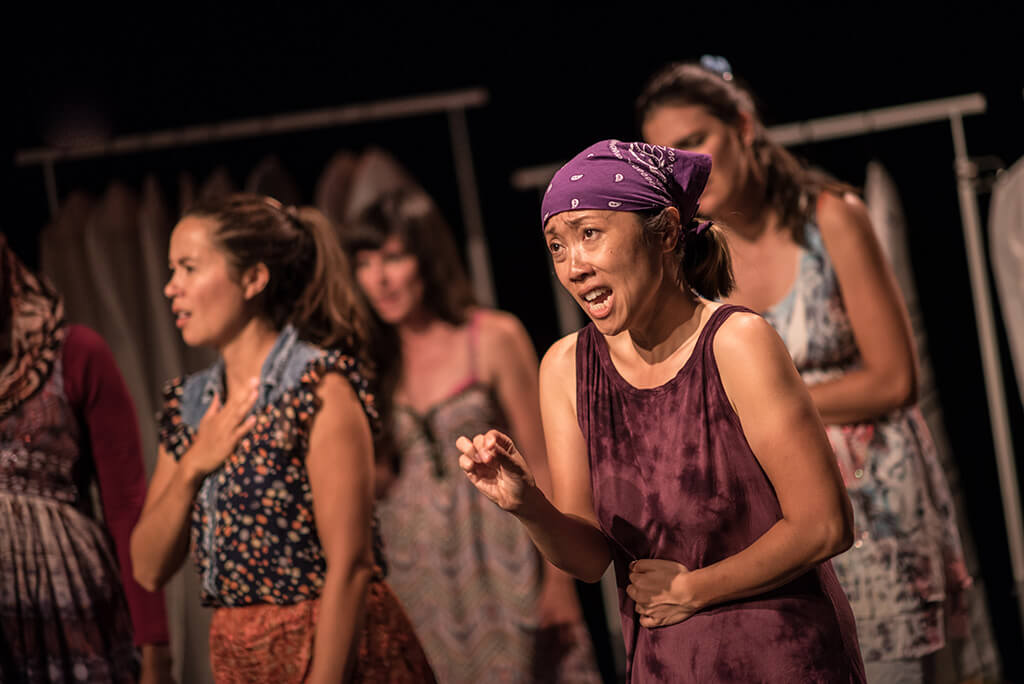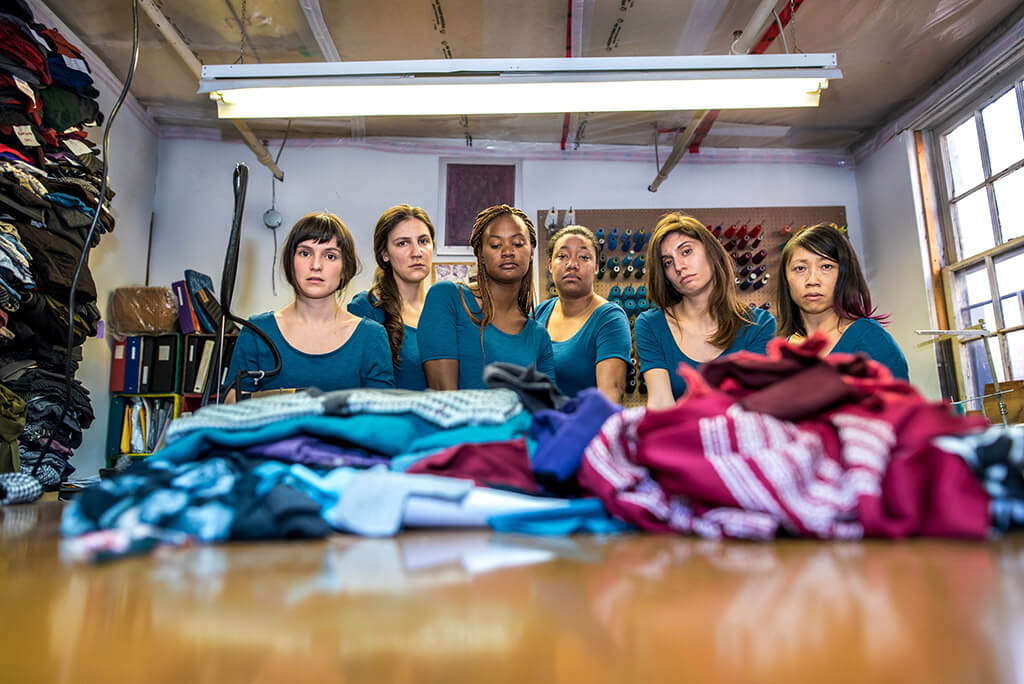
Nine opera singers, one trailer full of equipment, eight Ontario cities, over six hundred kilometres pedalled and one brand-new a cappella opera.
These are the facts and figures of Bicycle Opera Project’s Sweat, an opera by Juliet Palmer and Anna Chatterton that caps off its Ontario tour in Toronto this weekend.
When most people think of opera singers, feats of physical fitness don’t immediately spring to mind, despite the fact that opera singing—like playing any instrument—requires immense coordination. But the Bicycle Opera Project, founded by Larissa Koniuk in 2012, dispels stereotypes of operatic grandiosity as BOP’s fit young singers perform around Ontario without huge sets, technical crews, orchestra or in this year’s case, even accompaniment.
“The transportation helps eliminate some of the stigmas attached to opera and opera singers,” Geoffrey Sirett, long-term BOP member and music director of Sweat, describes BOP’s signature mode of travel.
This year’s Bicycle Opera Project production is the company’s most ambitious to date with more singers involved than ever before.
“[Having more singers] is a bit of a logistical nightmare from a touring perspective,” Sirett explains. “Simple things like dealing with road safety or mechanical issues on the road. When there are ten bikes, there are twenty brake pads that can loosen up, ten chains that need lubing in the morning, twenty tires that might need some attention and air and all those things.”
Mezzo-soprano Emma Char, member of the ensemble for Sweat and first-time BOP singer, reflects on these challenges from a first timer’s perspective.
“It was really exhausting at times, biking all day and then having a show the next day,” she confesses, “as well as having to get to the venue super early to do tech things and adjust to the space and have a quick musical rehearsal. I found my body adjusted to all the cycling by the time we were finished.”
Bicycle Opera Project is interested in more than just the physical challenges of biking an opera from place to place, as they aim to perform new Canadian works that focus on current issues. So, when composer Juliet Palmer approached Bicycle Opera Project about producing the Canadian premiere of Sweat, an a cappella work that centres around women in the textile industry, it was hard to think of an opera more perfect for the group.

“It seemed like a natural fit in terms of being easily transportable,” Sirett describes of Sweat. “It also deals with something very modern and socially relevant, which has always been at least a part of our mandate in terms of introducing people to opera for the first time.
“Our instruments come with us on our bikes, whether we want them to or not,” he continues. “That’s also impacted our trailer substantially. We’ve always travelled with three trailers and this year we were able to compress [it] to two because we didn’t have instruments to tow.”
But these advantages came with other challenges for the opera singers of BOP, many of whose repertoire focuses mainly around works by Mozart and Strauss rather than new a cappella works.
“[In preparing this,] I had no way of knowing how the other voices would sound,” Emma Char admits. “Playing notes on the piano didn’t provide a good aural reference for me. It was really exciting to come to rehearsal on the first day and hear how it sounded.”
“The challenges are both for the singer and the audience,” Sirett expounds. “It takes a while to adjust to a purely vocal environment. It can be a little disarming to not have the foundation; or at the very least a piano, if not an ensemble or small orchestra. You start to realize how much you rely on that as both a listener and a performer. It also means there’s an extra level of intimacy.”
Sirett also believes Palmer’s a cappella score adds particular weight in depicting the vulnerability of women in the textile industry.
“In this piece, [singing a cappella] is also a bit of a statement,” he describes, “in terms of giving voice to these women who, in our international discourse, go unvoiced and don’t have the kind of support or foundation that might be associated with an orchestra.”
The very nature of BOP’s car-free transportation sets an example as to how arts organisations can leave less of an environmental footprint, which pairs naturally with its production of politically-motivated works.
“There’s a synergy there,” says Sirett, “in terms of [our work] being both ecologically and economically sensitive.”
But, as with anything with opera singers involved, things aren’t all serious. When asked if the singers ever practise their a cappella ensemble-singing while riding, Sirett laughs.
“We sometimes practise Disney,” he tells. “ABBA seemed to be very popular this summer as well. A lot of people rely on 90s pop music to get them through the hills.”
Toronto audiences have two last chances to see and hear the important work from Canada’s pedal-powered opera company.
Cycle over to the Daniels Spectrum Saturday night or Sunday afternoon to, as ABBA would say, thank Bicycle Opera Project for the music.
For more CLASSICAL MUSIC NEWS, visit HERE.
Want more updates on Toronto-centric classical music news and reviews before anyone else finds out? Follow us on Facebook or Twitter for all the latest.
- LISTEN UP |Cherry Blossom Season Requires A Cherry Blossom Classical Playlist - May 11, 2018
- HANGOUTS | Carla Huhtanen’s Guide To Toronto - May 8, 2018
- HANGOUTS | Spending The Day With Jane Archibald - April 12, 2018



